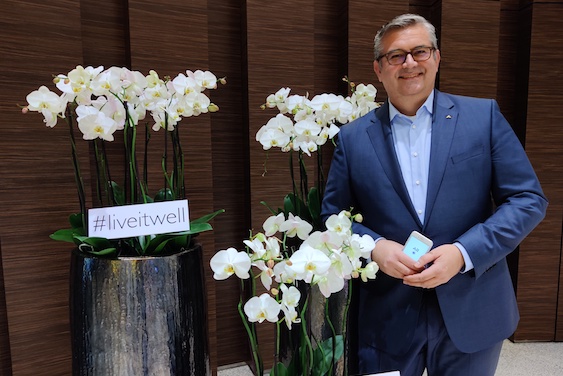“Estonia is arguably the most technologically advanced nation in the world. Since 2005, for instance, anyone can vote electronically, from anywhere in the world, and the current vote automatically negates all previous votes, which allows you to change your mind from one minute to the next,” says Gilles Felgen, general manager of the 238-room Swissôtel Tallinn, Estonia, in that Baltic country’s capital.
With a population of 1.3 million, Estonia is generally considered to be ahead of the rest technically. Ninety-nine percent of governmental services are online. At birth, babies are given unique identification numbers that apply life-long. That number holds all medical records, which you can access at any time to, say, visit a doctor or see, and re-order, your prescriptions.
When Felgen arrived at Swissôtel Tallinn in November 2017, he already had his unique number from an earlier spell working at another hotel in Tallinn 17 years ago (for foreigners wanting to work in Estonia, the issuing of unique numbers takes only a few days).

“Life has definitely changed during my absence – culinary standards and the restaurant scene have soared, and technology has improved even further,” he shared. Speedtest Global for September 2020 put the country’s average mobile download speed at 47.38 Mbps, upload at 13.81 Mbps and latency at 28ms.
So how does this affect hotel operations? “Technology simplifies meetings and events. Everything is effected and signed digitally,” said Felgen. This saves a lot of time and thus money.
Perhaps surprisingly, hotel guests encounter relics of yesteryear. Estonia gained its independence with the breakup of the Soviet Union in 1991 but somehow some of the 2007-vintage hotel’s systems are not, well, as modern as Felgen would like. “Check in or out of the hotel, and you still have paperwork that requires actual signatures, and there is no online ordering of, say, room service or spa treatments,” he admitted.
In normal times, the hotel has 160 employees, all Estonian. After interviews by Skype, all hiring “paperwork” is replaced by connecting with the newcomer’s ID number – online. About 30% of the team are native Russian speakers, which they use back of house (the other 70% chat in Estonian, though as a nation Estonia’s language skills are remarkably high, and the daily Excom meeting is in English, with town-hall gatherings in both English and Russian).
Generally, business is 50-50 corporate and leisure, with only 5% domestic, the rest split more or less evenly between the U.K., Scandinavia, Germany and Finland. Average stay is 1.8 nights and 34% overall are repeats. Younger guests expect that very-latest in-room technology but a sizeable number of mature vacationers simply want pampered service.
Felgen says it was pampering that brought him into the industry in the first place. Born and brought up in Luxembourg, he traveled with his parents to many great hotels, especially in Switzerland. He toyed with patisserie as a career but being given a check-out gift made him realize he simply wanted to make people happy.
“I am in the lobby to welcome guests as much as I can. I say, without any prompting from technology, I am Gilles, welcome,” he explained, adding that his managers call him by his first name while line staff, although encouraged to address him like that too, still prefer more formality.
